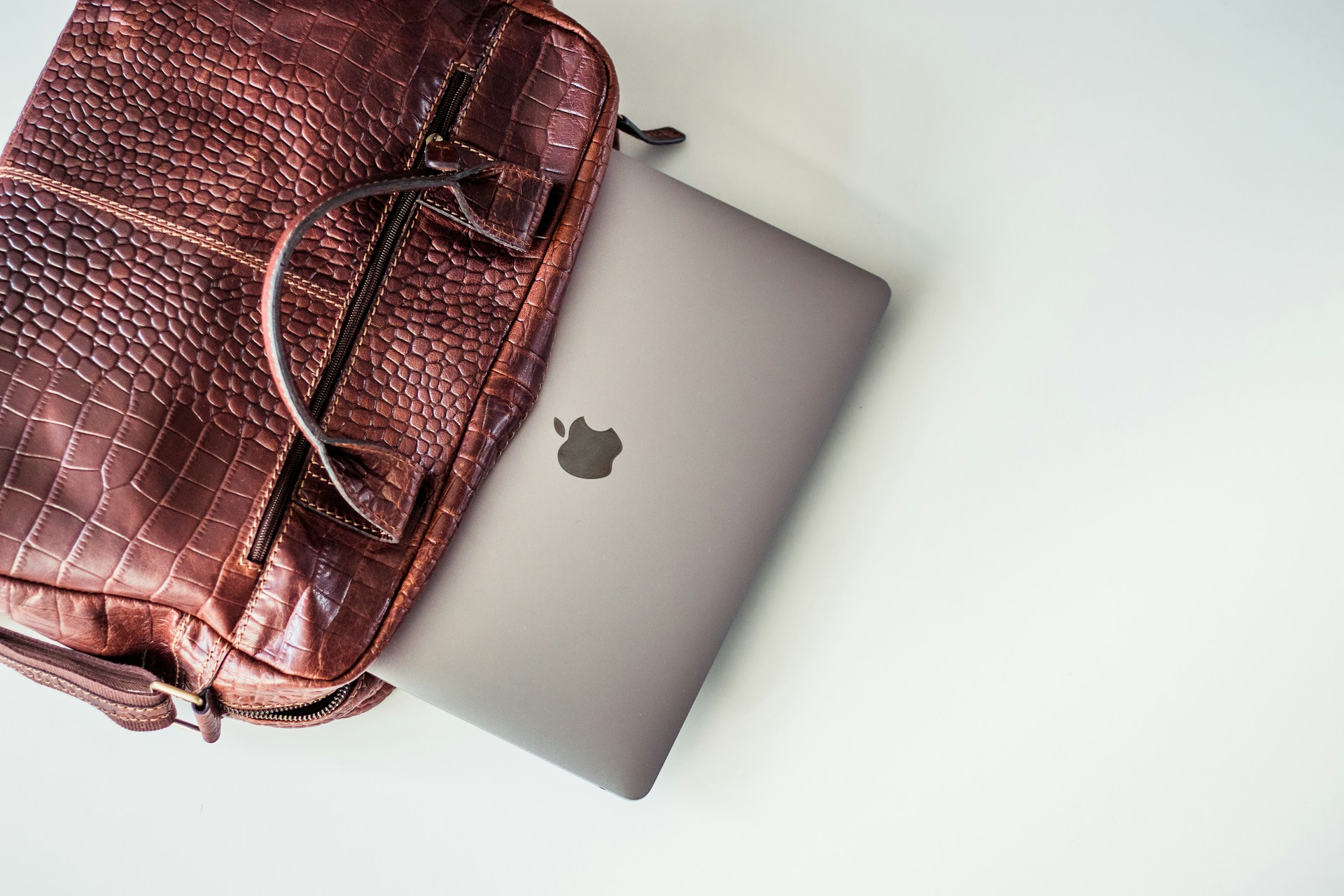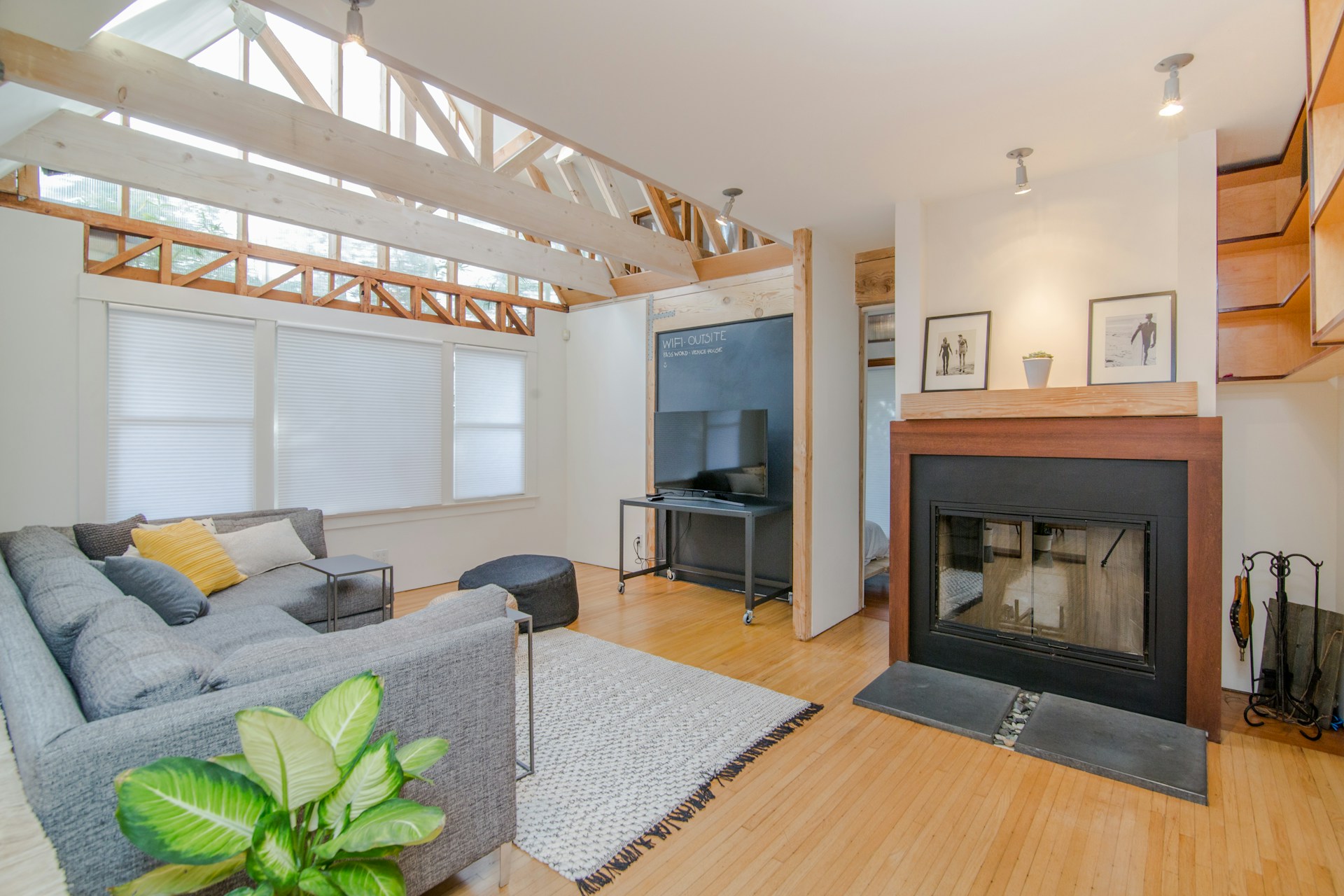Digital Nomads in Barcelona: Your Complete Guide
Do you want to be a digital nomad in Barcelona? Don't miss this complete guide with everything you need to live and work in this city.
If you’re a digital nomad looking for your next destination, Barcelona should be on your radar. This Spanish city has managed to combine its rich history and culture with a modern infrastructure that makes it one of the most attractive destinations for those who work remotely. With its Mediterranean climate, cultural offerings and growing community of international workers, Barcelona offers an ideal environment for balancing productivity and quality of life.
In addition, the city has excellent internet connectivity, top-notch coworking spaces and a strategic location in Europe that facilitates both business and leisure travel. In recent years, Barcelona has seen a boom in the number of remote professionals who choose it for its cosmopolitan atmosphere and well-established community of digital nomads. Whether you are looking for a quiet life in the most artistic neighbourhoods or you prefer to be in the heart of the city, Barcelona offers options for all types of profiles.
In this guide, we’ll take you through the key things to consider before moving to Barcelona as a digital nomad. From the reason why this destination is so attractive, to the best neighbourhoods to live and work in, here you’ll find everything you need to make your experience in Barcelona a success.
Why choose Barcelona to live as a digital nomad?
Barcelona is one of the most sought-after destinations for digital nomads in Europe and it’s not hard to see why. In addition to its architectural beauty and beaches, it is also a growing technology hub. Here are some reasons why Barcelona is an excellent choice for digital nomads:
- Community of digital nomads: Barcelona has a thriving community of remote professionals and entrepreneurs who come together at various networking events and conferences, such as 4YFN (4 Years From Now), part of the famous Mobile World Congress.
- Numerous coworking spaces: Such as Aticco, Betahaus or Talent Garden, where it is easy to connect with other international nomads and professionals.
- Quality of life: The city offers an excellent combination of the modern and the traditional, with a Mediterranean lifestyle that promotes wellbeing and health. With mild temperatures most of the year, accessible beaches and a wide range of outdoor activities.
- Global connectivity: The international airport El Prat connects the city with destinations all over the world, while its rail and bus networks makes it easy to travel around Spain and Europe. What’s more, cheap flight options to nearby cities make Barcelona ideal for those who wish to explore other parts of the continent while working remotely.
- Safety: In terms of safety, Barcelona is generally a safe city for digital nomads and travellers, although, as in any big city, it is important to be vigilant in crowded and touristy areas. The most common crimes are petty theft, such as pickpocketing, especially in areas such as Las Ramblas or the Gothic Quarter. Despite these risks, the city has a strong police presence, especially in areas with the highest number of visitors.
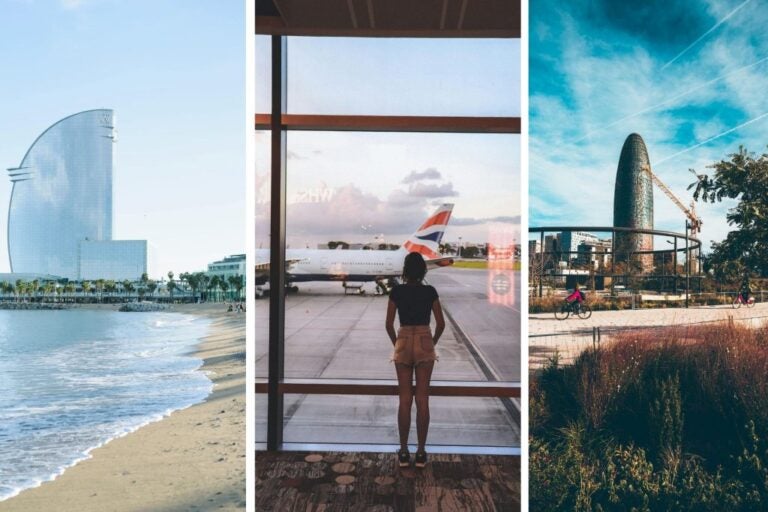
Visas allowing legal residence in Spain
In Spain, digital nomads have several visa options designed to facilitate their legal residence in Barcelona while working remotely. The best known is the digital nomad visa created specifically for this sector of online workers.
It is important to note that, in many cases, digital nomads can change their visa type, for example from the digital nomad visa to an employment visa, if they get a job in Spain, or a permanent residence visa, after fulfilling the residence time requirements. This provides flexibility for those who wish to settle in the country in the longer term.
| Visa Name | Features | Duration |
|---|---|---|
| Digital Nomad Visa | Created specifically for remote workers and freelancers working for companies outside the country. | It allows an initial stay of up to one year, with the possibility of renewal several times, up to a maximum of five years. |
| Non-lucrative residence visa | It does not allow you to work in Spain, but is intended for those who can demonstrate sufficient income to support themselves without working in Spain. | It is valid for an initial period of one year, but can be renewed for a further two years. Upon the visa reaching five years, the resident is eligible for permanent residence. |
| Self-employed work visa | For freelancers and self-employed people who wish to work as freelancers in Spain. Requires a business plan and proof of income. | Initial duration of one year and can be renewed for two-year periods. |
Where to live and work as a digital nomad in Barcelona
1. Recommended neighbourhoods for digital nomads in Barcelona
Barcelona is a cultural and diverse city, ideal for digital nomads looking for a place to combine work and leisure. The choice of neighbourhood can significantly influence the living experience, as each area offers a unique atmosphere, access to coworking spaces, accommodation options and a variety of cultural and recreational activities. The most recommended neighbourhoods are:
- Gràcia: Known for its bohemian atmosphere and lively squares, Gràcia is popular with travellers for its range of cafés, bars and cultural events. It also has good public transport connections, making it easy to access other areas of the city.
- El Born: This historic district combines modernity with tradition, offering a wealth of galleries, boutiques and restaurants. It’s a great place to find inspiration and enjoy the nightlife.
- Poble Sec: With a mix of cultures and a large community of nomads, Poble Sec has several coworking spaces and a welcoming atmosphere. Its close to Montjuïc, which offers a slice of greenery in the middle of the city.
- Eixample: With its wide avenues and modernist architecture, Eixample is ideal for those looking for a quieter environment. Numerous cafés and workspaces are located here, perfect for concentrating.
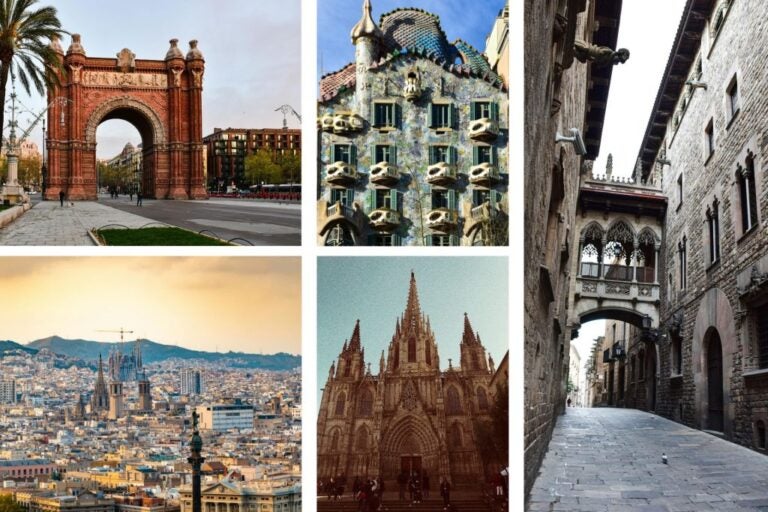
2. Accommodation options in Barcelona
For digital nomads, there are different types of accommodation in Barcelona to suit all budgets and preferences. From co-living spaces that foster community, to boutique hotels that offer comfort or home exchanges that allow nomads to save money. Here are the best-known in the city:
- Co-living spaces: Co-living spaces such as The Urban Campus or Bamboo Co-living offer private rooms and common areas, promoting a community among residents.
- Hotels: There are hotels that offer special rates for long stays, such as the Hotel Praktik in Eixample.
- Home exchange: Platforms such as HomeExchange allow nomads to exchange their homes, an inexpensive alternative to staying in the city.
3. Coworking spaces in Barcelona
Coworking spaces in Barcelona are essential for digital nomads and the city has several options that really stand out. These offices offer a flexible working environment tailored to the needs of nomads, but also encourage collaboration and networking between professionals from different disciplines. Make a note of the following among your favourites:
- Makers of Barcelona: This space offers a good internet connection, events and workshops. Access prices vary from 20 euros per day.
- COWO: With several locations in the city, COWO provides flexible workspaces from 15 euros per day.
- Aticco: This coworking space has stunning views of the city and a great community of professionals. Prices start from 200 euros per month.

4. Public spaces in Barcelona with good internet connection
Barcelona also has many public spaces that are ideal for remote working. Some of the most popular include parks, squares and cafés that offer free Wi-Fi and a relaxed atmosphere where Barcelona’s digital nomads often gather. If you are travelling to the city for work, we recommend that you use the Holafly eSIM for an excellent connection in the Catalan capital.
- Ciutadella Park: With quiet areas and shade, it is perfect for working outdoors.
- Sagrada Família Library – Josep M. Ainaud de Lasarte: This offers a quiet environment and powerful Wi-Fi connections.
- Coffee shops: Places like Café de l’Academia and Satan’s Coffee are known to have good internet connection and a comfortable environment to work in.
Taxes to be aware of in Barcelona
1. Tax obligations
Digital nomads in Barcelona should be aware of their tax obligations, as the taxes to be paid depend on their nationality and the length of time they stay in the country. If a digital nomad spends more than 183 days a year in Spain, he or she is considered a tax resident and must pay tax on his or her global income. This means that, in addition to income generated in Spain, they must also declare any income obtained in their country of origin or other countries. For those who are in Barcelona for less than 183 days, they will generally only be taxed on income generated within Spain, which may result in a lower tax burden.
2. Double taxation treaties
For digital nomads, it is essential to check whether their country of origin has a double taxation treaty with Spain. These treaties are bilateral agreements that allow individuals to avoid paying taxes in both countries on the same income. For example, if a digital nomad from a country that has a treaty with Spain works online from Barcelona, he or she could avoid double taxation, which could result in considerable savings. Reviewing the content of these treaties is advised, as they may vary in their provisions and benefits.
Moreover, understanding these arrangements can facilitate the tax filing process and help Travellers manage their tax burden more effectively. For more information on taxes for taxes for digital nomads in Spain and the particularities of double taxation treaties, consulting the official website of the Spanish Tax Agency or specific tax guides that deal with this subject in detail is advised.
Health insurance and quality of health service
1. Access to the public health system in Spain
Digital nomads in Spain have access to a public health system that is considered one of the best in Europe. To access this system, it is generally necessary to register and prove residence in the country. European Union (EU) citizens can use the European Health Insurance Card (EHIC), which allows them to receive medical care under similar conditions to Spanish citizens. On the other hand, nomads outside the EU should consider the option of registering with the Spanish Social Security system or taking out private health insurance in order to receive medical care more quickly and without complications.
2. Recommended private health insurance
Among the most recommended health insurance options for digital nomads and remote workers are Bupa Global, Sanitas, and Allianz Care. These companies offer policies that cover both emergency and regular medical care and are renowned for their quality and customer service. It is important for digital nomads to choose insurance that fits their specific needs, including coverage for medical consultations, medicines and speciality treatments. For more information on health insurance for digital nomads in Spain, consulting platforms that compare different insurance options is recommended.
3. Quality of medical care
The quality of medical care in Spain is high, with an extensive network of clinics and hospitals that meet international standards. Large cities, such as Barcelona, have well-equipped public and private hospitals, as well as clinics specialising in various areas of health. One of the most notable public hospitals in Barcelona is the Hospital Clínic de Barcelona, considered one of the best in the city, recognised both nationally and internationally for its excellence in medical care and cutting-edge research. In addition, many health professionals speak English, which facilitates communication for nomads who are not fluent in Spanish.
The Spanish health system is characterised by its focus on prevention and primary care, which allows patients to access quality medical services in an efficient manner. However, waiting times in the public system can sometimes be longer for certain procedures or specialties, leading many nomads to opt for private health insurance that offers immediate care.
Important: If you are a frequent traveler and want to stay connected without worrying about expensive roaming or looking for a new SIM at every destination, Holafly’s subscription plans are for you. With a single eSIM, enjoy internet in more than 170 countries for a fixed price and no surprises on your bill. Travel without limits and connect easily and securely! 🚀🌍
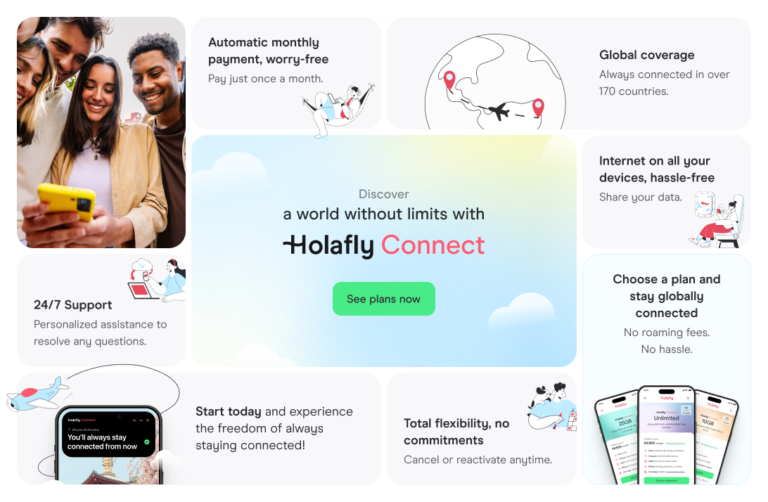
Daily life in Barcelona
1. Transport and mobility
If you plan to drive in Barcelona, you can use your foreign driver’s licence for a period of six months after your arrival. However, it is advisable to have an International Driving Permit (IDP) to avoid problems. After this period, you will need to validate your licence at the Dirección General de Tráfico (DGT), which may involve the presentation of certain documents and, in some cases, a practical test.
Barcelona has an efficient public transport system that includes metro, buses, trams and trains. The metro is one of the fastest and most popular ways to get around, with multiple lines covering the city and the surrounding area. What’s more, the bus network is extensive and complements the metro routes. Taxis are a convenient, though more expensive, option and are available throughout the city. You can also use car-sharing services such as Uber and Cabify, which operate in Barcelona and are a convenient alternative for getting around.
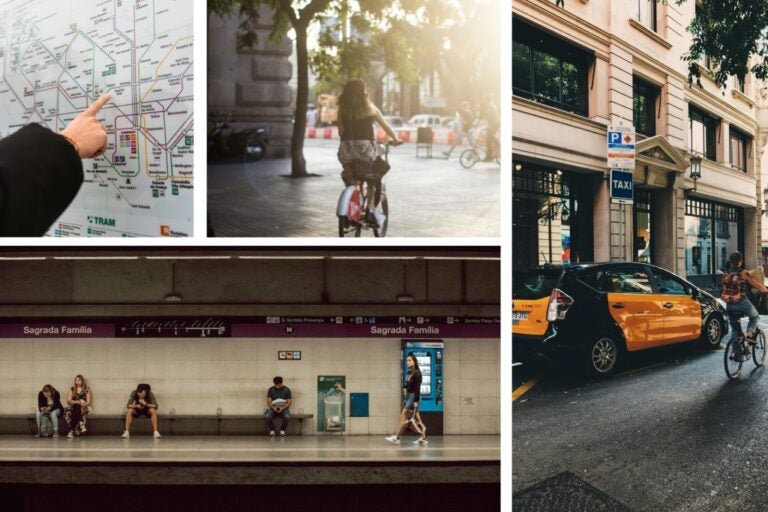
2. Financial management
For digital nomads in Barcelona, it is crucial to have a good banking system that facilitates the management of their finances. Some of the most recommended banks for foreigners are Santander, BBVA and CaixaBank, which offer accounts adapted to the needs of non-residents. In addition, digital banks such as Revolut and N26 are gaining popularity, as they allow you to open accounts quickly from an app and offer favourable conditions for international transfers and fee-free withdrawals.
In Barcelona, ATMs are widely available and usually accept international bank cards. However, it is important to be aware of the extra costs that may apply for withdrawals abroad, as some banks charge additional fees. Checking with your bank before you travel is advised to understand international transaction fees.
3. Food
In terms of food, Barcelona has a variety of supermarkets and local markets that make it easy to buy fresh produce and basic foodstuffs. The most common chains are Mercadona, Carrefour and Lidl, where you can find everything from local products to international brands. Barcelona’s best-known central market is the Mercat de Sant Josep de la Boqueria, located on La Rambla, in the heart of the city. La Boqueria is not only famous for the wide variety of fresh produce on offer, such as fruit, vegetables, fish, meat and sausages, but also for its history, dating back to the 13th century.
The average cost of meals in Barcelona can vary, but generally, eating in an affordable restaurant can cost between 10 and 20 euros per person. For digital nomads, set menus are a popular and inexpensive option, offering a full meal for an affordable price. In addition, there are many restaurants in Barcelona that offer typical Catalan and Mediterranean food, as well as international options, such as Asian, Italian, etc.
4. Leisure and free time
If you are looking for leisure activities in Barcelona, you can find something for all tastes and lifestyles. For those who enjoy sport, the city has numerous gyms and sports centres, where you can do everything from yoga classes to high-intensity workouts. There are also many options for outdoor sports, such as cycling and running, with routes and parks, such as Parc de la Ciutadella and Barceloneta beach.
Hiking enthusiasts can explore the hills surrounding the city, such as the Collserola Natural Park, which offers routes with breathtaking panoramic views of Barcelona. In addition, the city hosts festivals all year round, such as the Festa de la Mercè and the Sónar, which are perfect for socialising and enjoying the local culture.
5. Best seasons to be in Barcelona
The climate in Barcelona is Mediterranean, characterised by mild winters and hot summers. This influences your experience as a digital nomad significantly. The best times to visit or settle in are spring (March to June) and autumn (September to November), when temperatures are pleasant and there are fewer tourists.
During spring, the city blossoms and is ideal for outdoor activities and festivals. In autumn, temperatures remain warm, allowing you to explore the city and enjoy its lively cultural life. In winter, although temperatures are cooler, many activities can still be enjoyed, but be aware that some attractions may have reduced opening hours.
Cost of living as a digital nomad in Barcelona
The cost of living in Barcelona as a digital nomad can vary considerably depending on lifestyle and personal choices. Here is a breakdown of the average expenses you might face on a monthly basis:
- Accommodation: Prices for co-living spaces and rentals in Barcelona vary according to location and amenities. On average, a co-living space can cost between 400 and 900 euros per month. If you choose to rent a flat, prices can range from 800 to 1,500 euros depending on the neighbourhood, square metres, number of rooms, etc.
- Food: Eating at home can cost around 250-350 euros per month if you shop at supermarkets such as Mercadona or Carrefour. If you prefer to eat out, a meal in a budget restaurant can cost between 10 and 15 euros, while a meal in a mid-range restaurant can be between 20 and 40 euros per person.
- Transport: Barcelona has an efficient and affordable public transport system. A monthly pass for public transport costs around 40 euros. If you choose to use taxis or car-sharing services, be aware that fares may increase during peak hours.
- Coworking spaces: The cost of a monthly pass at popular spaces such as WeWork or Spaces varies between 150 and 400 euros. Some places offer cheaper rates if booked in advance.
- Leisure: A cinema ticket can cost around ten euros, while a gym membership costs between 30 and 60 euros per month. Participating in events or festivals may incur additional fees. You can enjoy the tourist card to benefit from bigger discounts.
In summary, adding up all the main expenses, the total cost of living for a digital nomad in Barcelona can be between 1,500 and 2,500 euros per month, depending on accommodation, lifestyle and activity choices. What do you reckon? If you think this city is your ideal destination, don’t think twice about taking the plunge! Barcelona is waiting for you!





 Language
Language 


















 No results found
No results found




